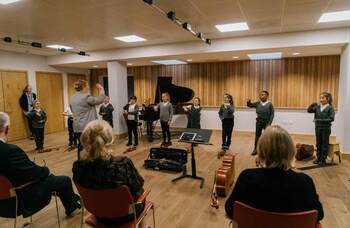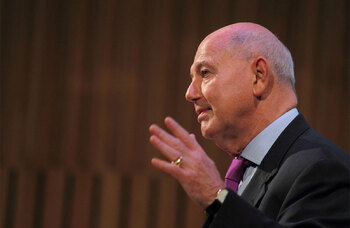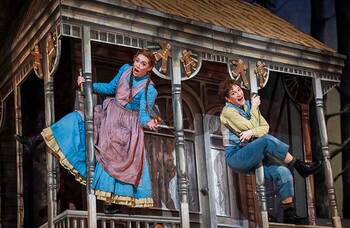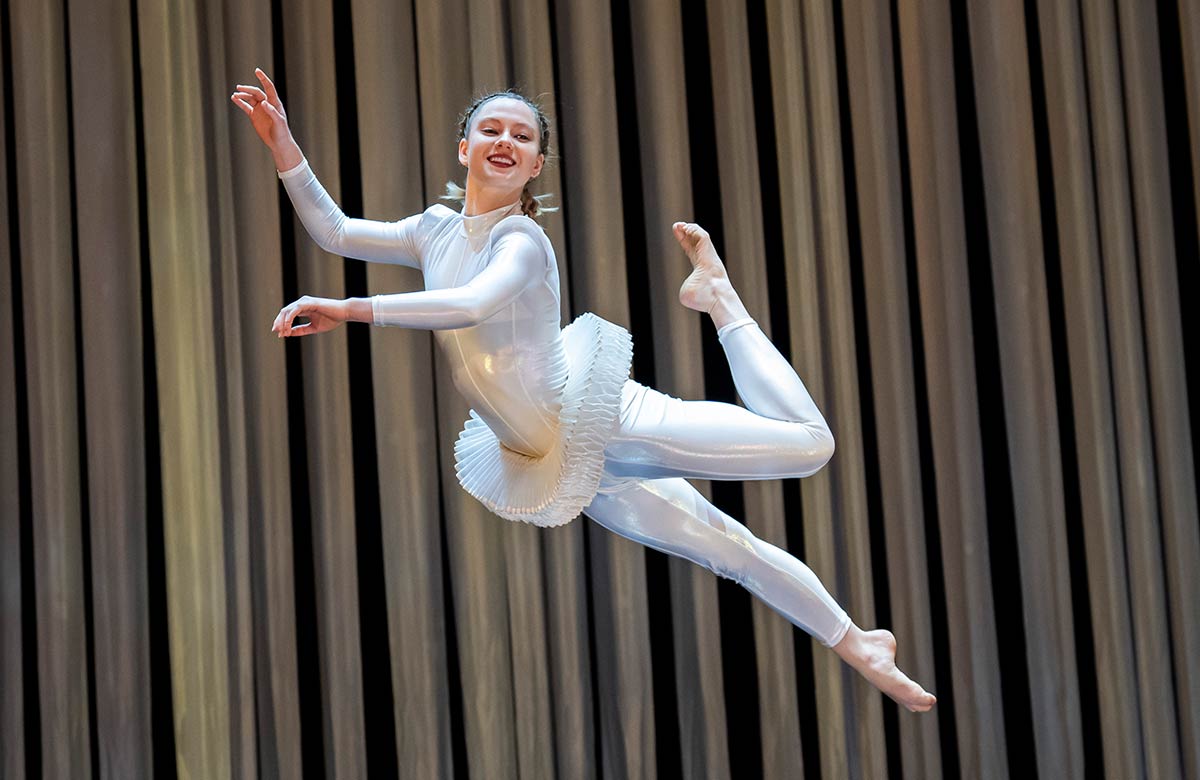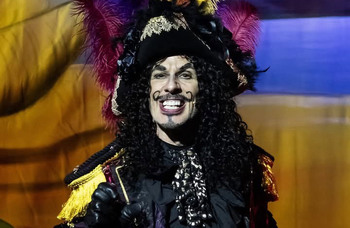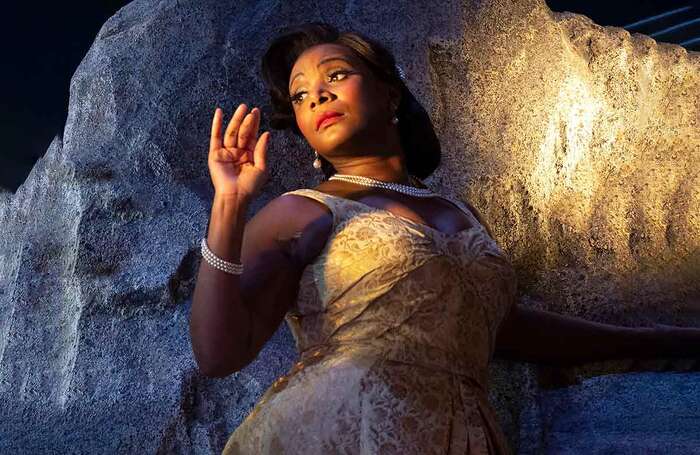
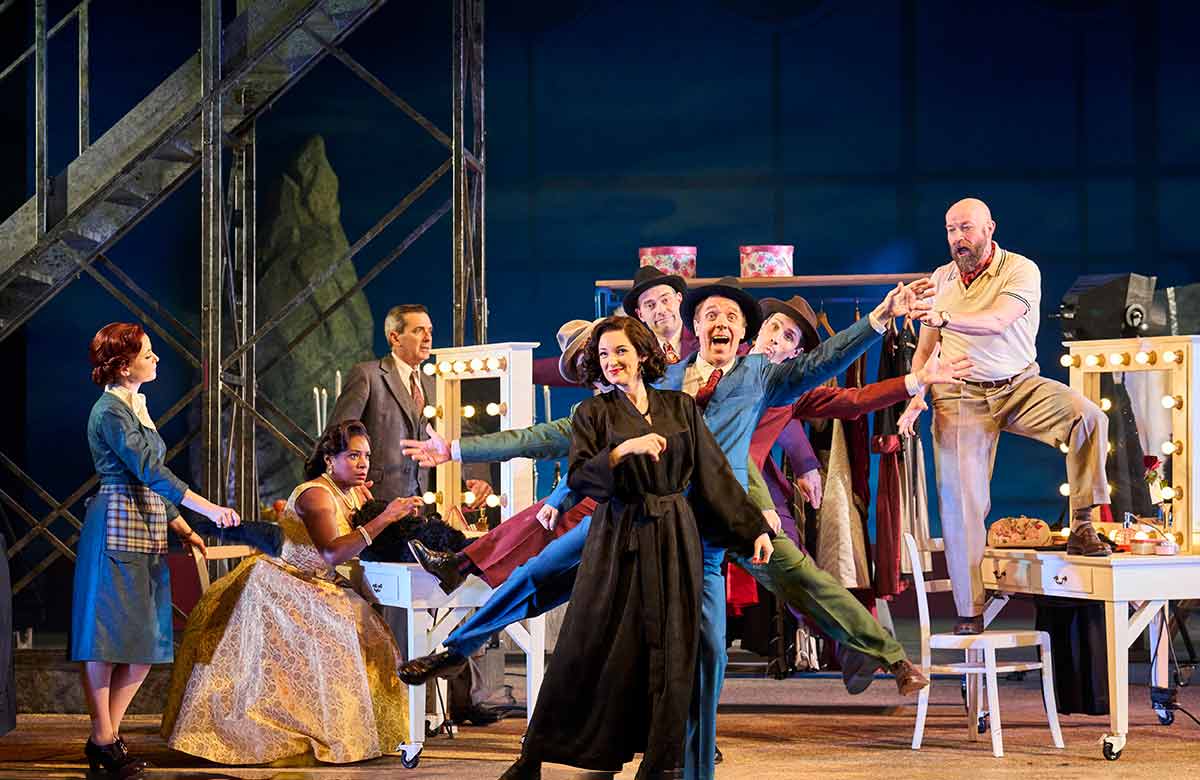
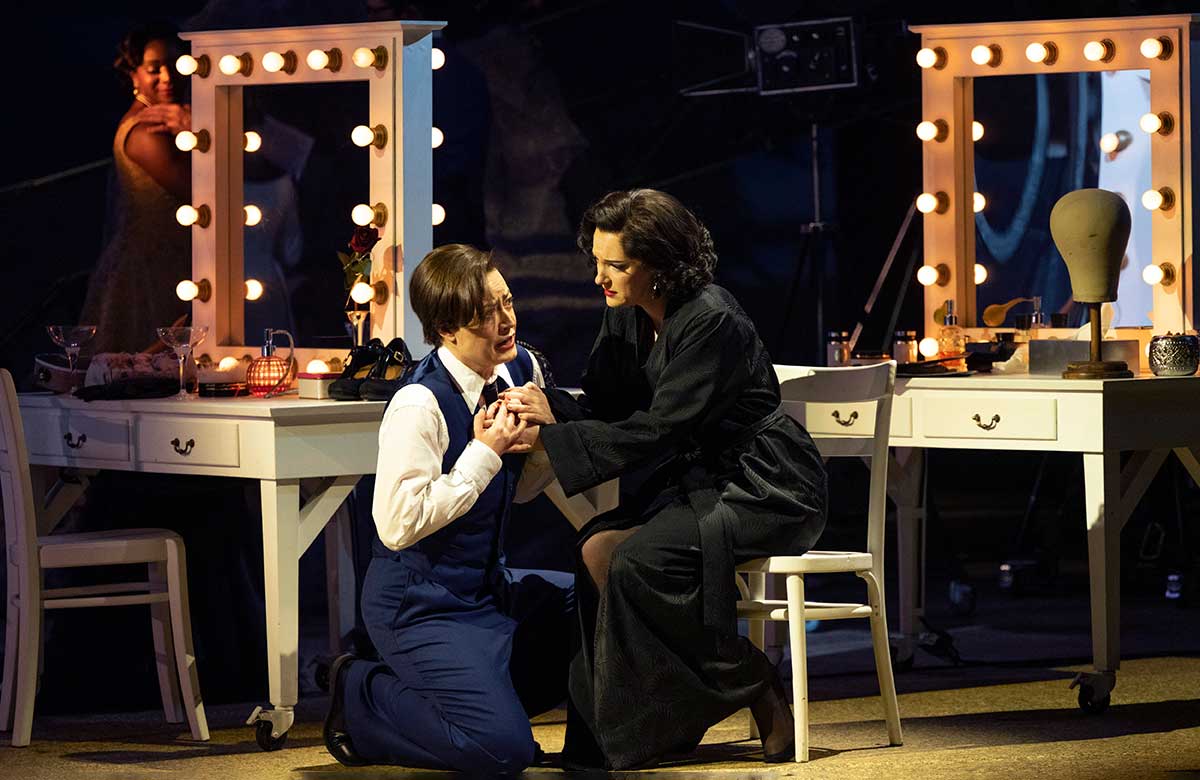
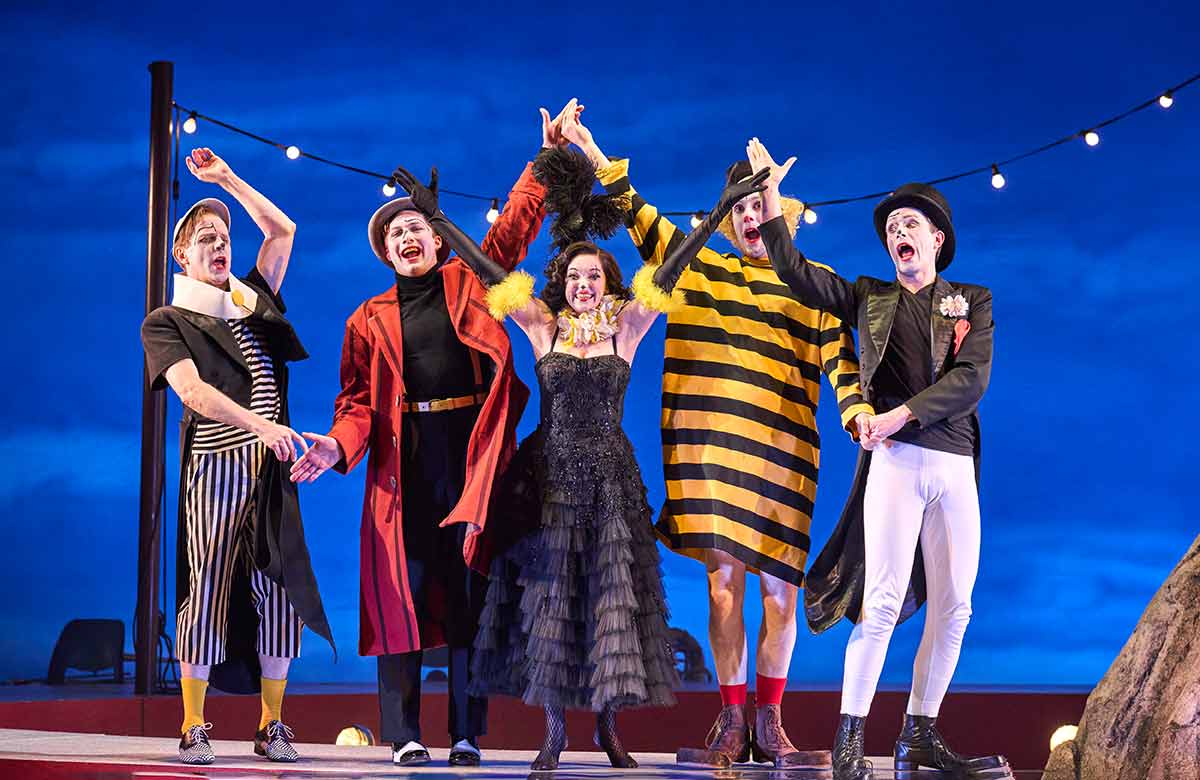
Rodula Gaitanou’s relocation of Strauss’ opera to an Italian film studio produces great entertainment
In its standard, revised version (1916), Strauss’ opera begins backstage, where preparations are underway to premiere a serious, mythological work alongside a low vaudeville comedy. Suddenly, the rival companies are thrown into confusion when the outrageous order is given to perform the two pieces simultaneously, to ensure that the post-show fireworks start on time. Rodula Gaitanou’s staging moves the original 18th-century scenario to Cinecittà in the Fellini era, where the revamp involves a mash-up of two entirely different movies – one tragic, one comic. The swapping of periods encourages designer George Souglides to come up with a clever film studio set and attractive 1950s costumes while leaving the basic sense of a preposterous culture clash entirely intact.
Leading the opera seria is Elizabeth Llewellyn, every inch the demanding Prima Donna in the Prologue, then, following the interval, seated on a rock and mourning her life in her grandest soprano manner as the abandoned Ariadne. The scale and quality of her singing are outstanding. She is perfectly partnered by Ric Furman, who presents a preening parody of an operatic tenor before turning into a thrilling vocal artist as the god Bacchus in the second half.
A third lead is the young Composer of the opera seria, designated a soprano role by Strauss, but here (as usual) allotted to a mezzo, Hanna Hipp, whose emotional investment in the character’s vulnerable idealism is touchingly captured in lithe, soaring tone. The fourth principal is Zerbinetta, soubrette queen of the comedy troupe, whose showpiece aria is stuffed with high notes, trills and other coloratura challenges. Soprano Jennifer France dispatches it with scarcely credible virtuosity, not to mention bags of charm.
A complex piece, Ariadne is full of secondary roles, expertly delivered here by a large company. Leaving strong impressions are Dean Robinson’s Music Master, movingly concerned for the success of his pupil’s work; John Savournin’s impossibly haughty Major Domo; and Daniel Norman’s happy-go-lucky Dancing Master. Capering entertainingly are the commedia dell’arte troupe: Dominic Sedgwick, Alex Banfield, Adrian Dwyer and, once again, the multitasking stage-savvy Savournin. Vocally pleasing are the lyrical trio of Naiad (Daisy Brown), Dryad (Laura Kelly-McInroy) and Echo (Amy Freston) – though their constant motion becomes irritating.
Silent cameos feature either the crew working on the movie – a director and his assistant, an electrician, a make-up artist and so on – or merely onlookers such as sponsors, all of them enlivening Gaitanou’s busy remake of the original.
Conductor Antony Hermus maintains flawless balance both within the pit and between pit and stage. With Opera North’s orchestra sounding as if they have fallen completely in love with Strauss’ score, the gorgeous music simply gleams.
More Reviews
Recommended for you
More Reviews
Recommended for you
Most Read
Across The Stage this weekYour subscription helps ensure our journalism can continue
Invest in The Stage today with a subscription starting at just £5.99
